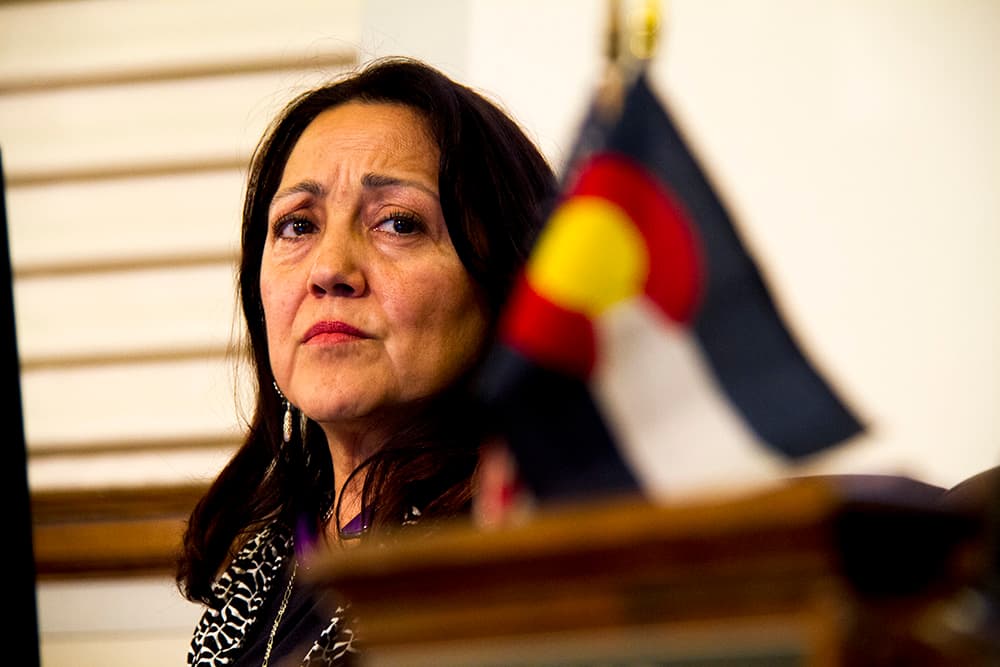The cuts to social services, health care, housing supports, environmental regulation and clean energy research proposed in President Donald Trump's budget would devastate Denver, the City Council said in a resolution that asked Colorado's congressional delegation oppose the budget.
"You have seen the news media about these proposed cuts. If Congress moves to approve it, the implications to Denver residents will be devastating, particularly if you happen to be one of the people who rely on any of these services," Councilwoman At-large Debbie Ortega said after reading the resolution into the record Monday. "We in this country don't throw people aside and expect them to just fend for themselves. ... It's important to send a message to our congressional delegation."

Councilman Paul Lopez said he's heard it suggested the resolution is a political move by a Democratic city opposed to a Republican president. That's not the case, he said.
"We are in some unique times politically," he said. "It has less to do with what letter comes after your last name and your party and more to do with this budget that seems to affect just about every single category that we are obliged to take care of, the poor and the needy," he said. "There are people in our city who are very poor, and Medicaid is their only form of health care. Those are our children who are living in poverty who call this city home. These are our elders who now depend on this."
"I cannot begin to imagine what a budget like this would do to our city," Lopez continued. "It would destroy us and especially the weakest among us. We cannot let that happen."
Councilman Wayne New said he and other municipal leaders had a chance to talk to Sens. Michael Bennet and Cory Gardner during a recent National League of Cities meeting, and they assured him the budget would not pass in its proposed form.
"They saw it was drastic," he said. "... Our representatives are listening to us."
Trump's proposed budget would shift $4.1 trillion from domestic spending to the military and to border security. The resolution, which was approved unanimously, paints a stark picture of the potential impact.
On health care:
"The President’s budget eliminates $610 billion for Medicaid over 10 years and this, coupled with the $834 in Medicaid reductions proposed in Trumpcare, would slash the program, which provides health insurance for the poor, including 60 percent of nursing home residents, by 45 percent by 2026 compared with current law; this will most certainly negatively impact Denver Health which currently derives almost half its funding from Medicaid-related payments."
On social service spending:
"For the approximately 223,231 Denverites receiving medical assistance (Medicaid and Child Health Plan Plus) and the nearly 9,000 receiving Temporary Assistance for Needy Families (TANF), the Denver Department of Human Services notes that program reductions will increase poverty for all ages of people which is a key social indicator of child abuse, school performance, mental health issues, addiction, criminal system involvement, and homelessness: 'Simply put, such cuts create a less healthy, less educated, and less productive citizenry, and will result in significant financial pressures on other systems (such as hospital emergency rooms and the criminal justice system).'"
On the EPA:
"Cuts of 31.4 percent for the Environmental Protection Agency, threaten Denver’s quality of life as clean air and water, natural resources, and related recreational opportunities are an integral part of the Denver and Colorado lifestyle and contributes to Denver’s ranking as among the most active and healthy populations."
On job training and housing:
"The President also proposes to cut major job training grants by 40 percent, even though many workers need to upgrade their skills to succeed in today’s rapidly changing economy; to eliminate housing vouchers for more than 250,000 lower-income households, and end the Low-Income Home Energy Assistance Program, which helps poor households pay their heating bills."











